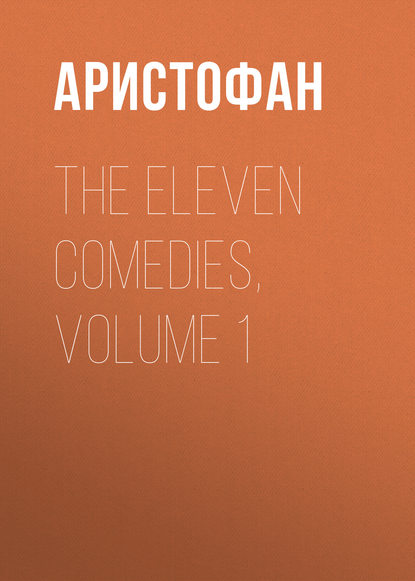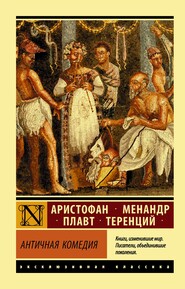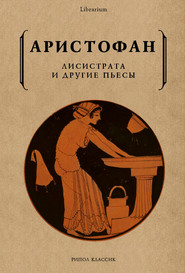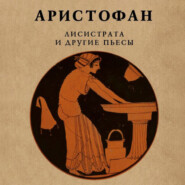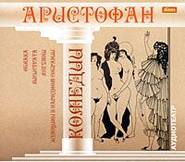По всем вопросам обращайтесь на: info@litportal.ru
(©) 2003-2024.
✖
The Eleven Comedies, Volume 1
Автор
Год написания книги
2018
Настройки чтения
Размер шрифта
Высота строк
Поля
133
Parody of a well-known verse from Euripides' 'Alcestis.'
134
The name Agoracritus is compounded: cf. [Greek: agora], a market-place, and [Greek: krinein], to judge.
135
This grandiloquent opening is borrowed from Pindar.
136
Mentioned in the 'Acharnians.'
137
A soothsayer.
138
A flute-player.
139
An allusion to the vice of the 'cunnilingue,' apparently a novel form of naughtiness at Athens in Aristophanes' day.
140
As well known for his gluttony as for his cowardice.
141
One of the most noisy demagogues of Cleon's party; he succeeded him, but was later condemned to ostracism.
142
A town in Bithynia, situated at the entrance of the Bosphorus and nearly opposite Byzantium. It was one of the most important towns in Asia Minor. Doubtless Hyperbolus only demanded so large a fleet to terrorize the towns and oppress them at will.
143
These temples were inviolable places of refuge, where even slaves were secure.
144
A rocky cleft at the back of the Acropolis into which criminals were hurled.
145
Young and effeminate orators of licentious habits.
146
By adroit special pleading he had contrived to get his acquittal, when charged with a capital offence.
147
They were personified on the stage as pretty little filles de joie.
148
A name invented by Aristophanes and signifying 'a just citizen.'
149
Cleon had received five talents from the islanders subject to Athens, on condition that he should get the tribute payable by them reduced; when informed of this transaction, the Knights compelled him to return the money.
150
A hemistich borrowed from Euripides' 'Telephus.'
151
The tragedies of Aeschylus continued to be played even after the poet's death, which occurred in 436 B.C., ten years before the production of the Acharnians.
152
A tragic poet, whose pieces were so devoid of warmth and life that he was nicknamed [Greek: chi_on], i.e. snow.
153
A bad musician, frequently ridiculed by Aristophanes; he played both the lyre and the flute.
154
A lively and elevated method.
155
A hill near the Acropolis, where the Assemblies were held.
156
Several means were used to force citizens to attend the assemblies; the shops were closed; circulation was only permitted in those streets which led to the Pnyx; finally, a rope covered with vermilion was drawn round those who dallied in the Agora (the marketplace), and the late-comers, ear-marked by the imprint of the rope, were fined.
157
Magistrates who, with the Archons and the Epistatae, shared the care of holding and directing the assemblies of the people; they were fifty in number.





